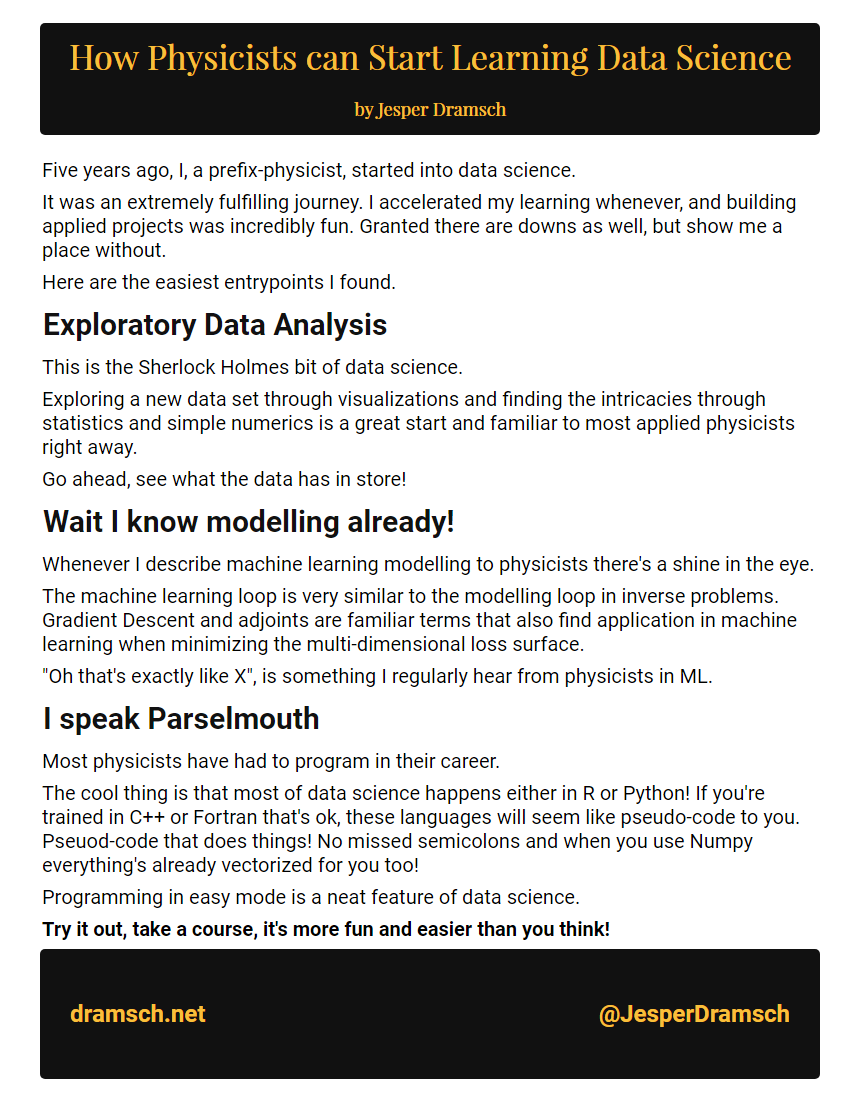Five years ago, I, a prefix-physicist, started into data science.
It was an extremely fulfilling journey. I accelerated my learning whenever, and building applied projects was incredibly fun. Granted there are downs as well, but show me a place without.
Here are the easiest entrypoints I found.
Exploratory Data Analysis
This is the Sherlock Holmes bit of data science.
Exploring a new data set through visualizations and finding the intricacies through statistics and simple numerics is a great start and familiar to most applied physicists right away.
Go ahead, see what the data has in store!
Wait I know modelling already!
Whenever I describe machine learning modelling to physicists there's a shine in the eye.
The machine learning loop is very similar to the modelling loop in inverse problems. Gradient Descent and adjoints are familiar terms that also find application in machine learning when minimizing the multi-dimensional loss surface.
"Oh that's exactly like X", is something I regularly hear from physicists in ML.
I speak Parselmouth
Most physicists have had to program in their career.
The cool thing is that most of data science happens either in R or Python! If you're trained in C++ or Fortran that's ok, these languages will seem like pseudo-code to you. Pseuod-code that does things! No missed semicolons and when you use Numpy everything's already vectorized for you too!
Programming in easy mode is a neat feature of data science.
Try it out, take a course, it's more fun and easier than you think!

This atomic essay was part of the October 2021 #Ship30for30 cohort. A 30-day daily writing challenge by Dickie Bush and Nicolas Cole. Want to join the challenge?
